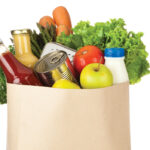
Comment
Comment: In praise of processed foods
A new study shows there’s no clear-cut consensus on what ‘processed’ means

Comment: Food affordability. The perfect economic storm
The cost of housing is now the biggest contributor to food unaffordability in Canada

Comment: Land as an inflation fighter
Real estate and farmland typically are an excellent inflation hedge
Comment: Big Agbiz’s big ‘price-fixing’ settlements need big fix
When a massive fine is peanuts to a big company, there’s a problem reforming its behaviour

Comment: The great reset awaits for Canada’s restaurants
As the world ponders going back to normal the food-service sector has changed forever
Comment: The need to grow, in Canada
One of Canada’s best-run food companies just gave vertical farming a boost

Further swine fever outbreaks threaten slow growth in China’s soy demand
Market watchers now worry the disease’s latest impact could be worse than it appears

Comment: Let’s get ready to ‘build back better’
Canada needs a permanent solution to perennial transportation issues as part of its economic recovery

Comment: COVID-19 pandemic – lessons to keep
Most of us can’t wait to turn the page on the pandemic, but we’ve also learned a lot

Comment: The pandemic has shown governments can make decisions quickly
Too often, bureaucratic entropy takes over and that makes us less competitive in the global marketplace


